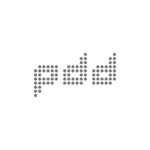Technology comes in where doctors cannot
Mobile phone software applications are a ubiquitous part of society. In 2018, there were estimated to be 205.4 billion smartphone health app downloads (worldwide). In 2021, this figure is expected to rise to over 352.9 billion. The adoption of digital tools to track and improve health is a big part of this trend and offers the potential to minimise the cost of care and reduce the chances of suffering from a disease.
In this piece, we explore some of the recent innovations in this area and consider how they will make a difference. Healthcare gadgets are enabling us to take control by monitoring our lifestyle and storing health records. With modern technology this burden can be reduced, placing data tracking tools under an increasingly favourable light.
Artificial Intelligence (AI) has long been a topic of interest across the tech industry and it will continue to prove useful within the healthcare context by streamlining administrative and clinical processes. Because AI applications cannot yet make clinical decisions, they can be used to improve staff productivity and make back end processes more efficient. According to Accenture analysis, several major applications are set to reshape the healthcare sector by 2026.

Source: Accenture
As illustrated above, each application has an associated value and the higher the value the more likely implementation becomes. Hence, robotics is likely to become prevalent and offer new capabilities (for example incorporation of information from medical records during operations in real-time). This analysis also forecasts that virtual nurses will become another frontrunner – AI applications will allow users to have their symptoms checked remotely and results sent to clinicians only when patient care is required, avoiding unnecessary visits to hospitals.
What do tech giants have in store for healthcare?
By combining data stored on mobile phones with health records from multiple institutions, Apple is generating a holistic overview of user health. Apart from allergies and medications, users can also access details about their own mental health, which are generated through changes in screen time or drop-offs in social interaction. Eventually, users are notified and alerted to address such issues. Technology is, therefore, serving as a way of understanding personal wellbeing.
 Image credit: Apple
Image credit: Apple
At the same time, binge-watching TV shows, replying to work emails and catching up on the latest social media posts might not lead to a balanced life (for example overuse of technology could lead to sleep deprivation and/or a disturbed sleep-wake cycle). Researchers suggest that poor sleep is related to the risk of cardiovascular disease (for example). However, technology can be used to address this concern – for example, sleep tracking devices might help diagnose when sleep patterns are unusual and/or flag issues. For instance, the sleep tracking app Urbandroid was developed for Android users and monitors sleep. The awake-detection process is depended on users’ sleep phases, heart rate and movement patterns. It uses Philips Smart Light to wake them up at an optimal time, therefore, facilitating sleep quality.
 Image credit: Urbandroid
Image credit: Urbandroid
Good quality sleep is regarded as beneficial as it can help users lower their anxiety and feel refreshed and rested. Wearables can also play a role in this – offering personalised suggestions on how to improve health. Reviews suggest that the latest addition to Fitbit’s charge generation – Fitbit Charge3 smartwatch will place the brand at the top of the list for smart wearable devices.
 Image credit: Fitbit and Wired
Image credit: Fitbit and Wired
Across many applications, customers are increasingly looking towards technology-mediated support. For example the emergence of autonomous and internet-enabled appliances ready to provide nutritional advice adjusted to individual need. Innovative fridges, such as Samsung’s Family Hub™ Multi-door Fridge Freezer incorporate a recipe app, inner view cameras and shopping reminders into a kitchen appliance – ready to feed the appetite of the health-conscious consumers.

Image credit: Samsung
With this array of modern technology, unhealthy living will hopefully become a thing of the past especially with the emergence of autonomous and internet-enabled gadgets ready to assess your performance and provide suggestions for improvement based on your lifestyle. Nevertheless, it is still to be established whether wearable devices will ever replace doctors; and not because they are lacking in precision or information, but because the social interaction between patients and the medical staff goes beyond sensors and a smart screen.


